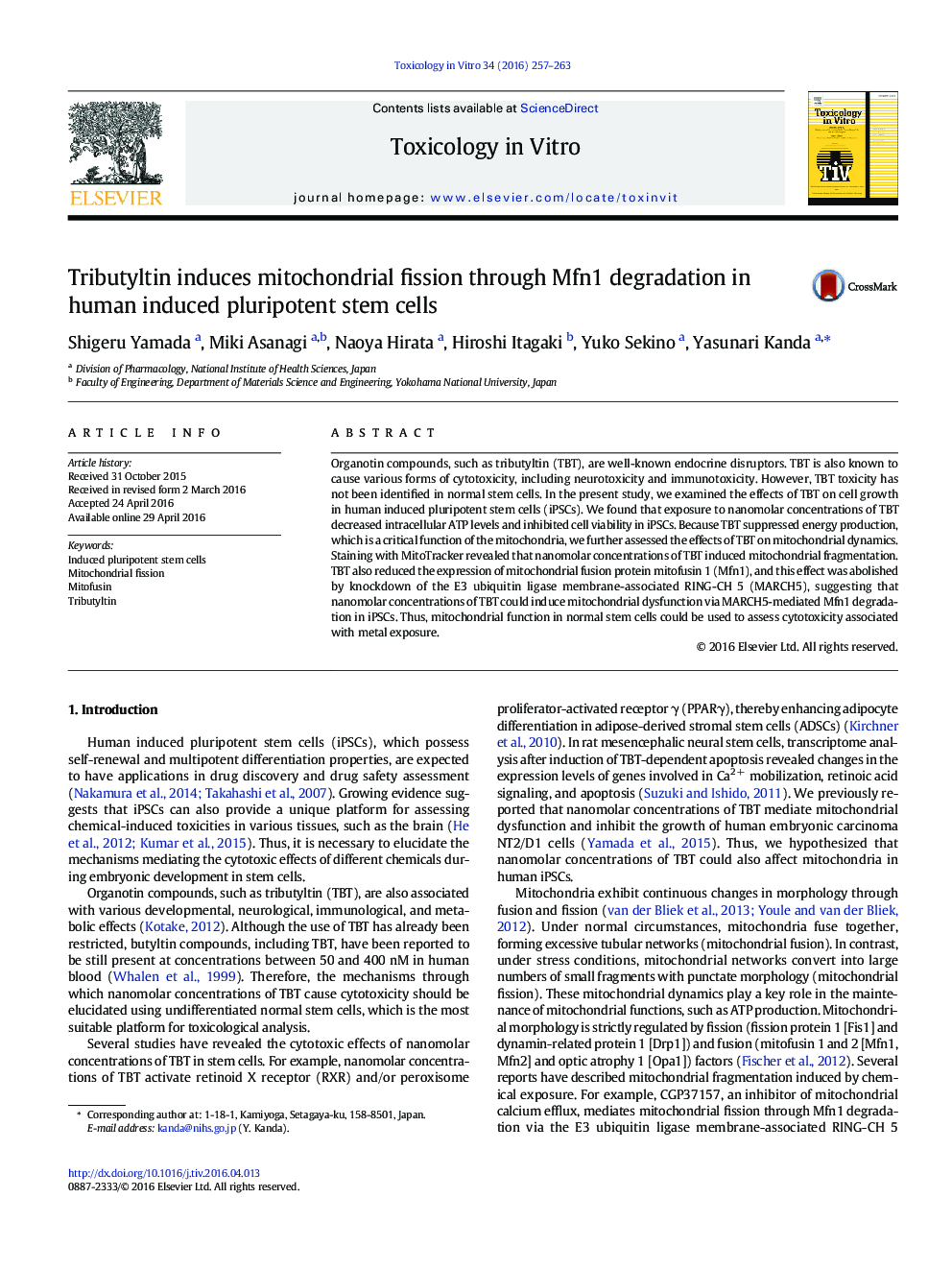| کد مقاله | کد نشریه | سال انتشار | مقاله انگلیسی | نسخه تمام متن |
|---|---|---|---|---|
| 5861086 | 1562711 | 2016 | 7 صفحه PDF | دانلود رایگان |

- We examined TBT toxicity in human induced pluripotent stem cells.
- TBT at nanomolar levels induced Mfn1 degradation and mitochondrial fission.
- TBT-induced mitochondrial dysfunction was mediated by MARCH5.
Organotin compounds, such as tributyltin (TBT), are well-known endocrine disruptors. TBT is also known to cause various forms of cytotoxicity, including neurotoxicity and immunotoxicity. However, TBT toxicity has not been identified in normal stem cells. In the present study, we examined the effects of TBT on cell growth in human induced pluripotent stem cells (iPSCs). We found that exposure to nanomolar concentrations of TBT decreased intracellular ATP levels and inhibited cell viability in iPSCs. Because TBT suppressed energy production, which is a critical function of the mitochondria, we further assessed the effects of TBT on mitochondrial dynamics. Staining with MitoTracker revealed that nanomolar concentrations of TBT induced mitochondrial fragmentation. TBT also reduced the expression of mitochondrial fusion protein mitofusin 1 (Mfn1), and this effect was abolished by knockdown of the E3 ubiquitin ligase membrane-associated RING-CH 5 (MARCH5), suggesting that nanomolar concentrations of TBT could induce mitochondrial dysfunction via MARCH5-mediated Mfn1 degradation in iPSCs. Thus, mitochondrial function in normal stem cells could be used to assess cytotoxicity associated with metal exposure.
Journal: Toxicology in Vitro - Volume 34, August 2016, Pages 257-263